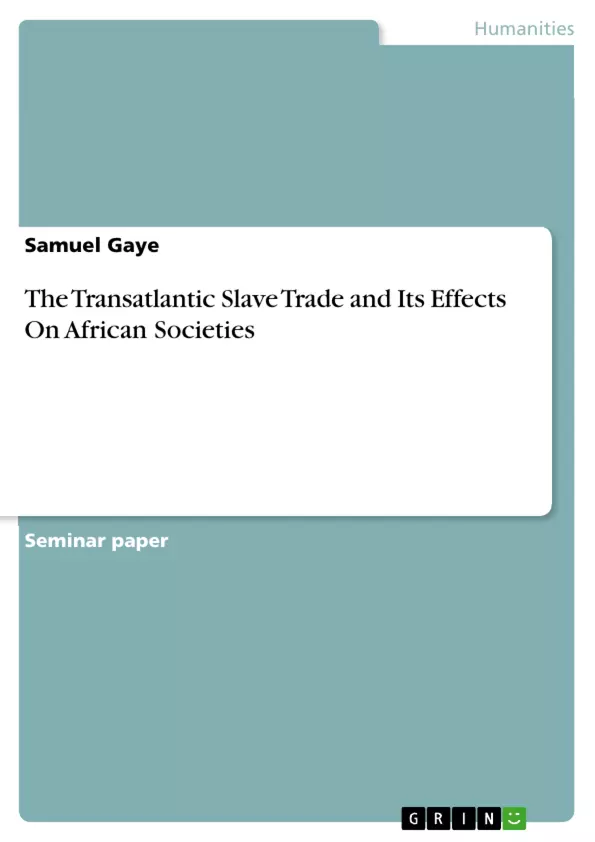While there is no shortage of scholarship regarding the transatlantic slave trade and the cataclysmic effects it has had on the African diaspora, however, not much is known about the direct dichotomy between the transatlantic slave trade and the first independent republic on the continent of Africa. This paper delves into the historicity of slavery, recounting how slavery evolve over 10,000-years to become the brutal institution it morphed into by the time of its abolition in the 19th century. It uncovers how the transatlantic slave trade decimated African societies permanently and how it led to the first independent republic on the continent of Africa.
Table of Contents
- Introduction
- The Transatlantic Slave Trade
- The Origin of Slave Trading
- An Overview of the Transatlantic Slave Trade
- Life on the Plantation
- The Abolition of Slavery
- The Repatriation of Freed Blacks to Africa
- The Founding of Liberia
- The Founding of the American Colonization Society (ACS)
- The Coming of the Settlers
- The Creation of Liberia
- The Effects of the Slave Trade
- The Effects of Slavery on Enslaved People and their Descendants
- The Effect of Slavery on Africa
- Conclusion
Objectives and Key Themes
This term paper explores the transatlantic slave trade and its enduring effects on African societies. The paper aims to provide a historical overview of the slave trade, examining its origins, methods, and consequences, particularly in the context of the African continent. It delves into the impact of slavery on both the enslaved individuals and their descendants as well as on the broader African society.
- The historical origins and development of the transatlantic slave trade.
- The experiences of enslaved Africans during the transatlantic journey and on plantations.
- The impact of the slave trade on African states and societies.
- The legacies of slavery and its continuing influence on African communities.
- The role of the abolition movement and the creation of Liberia.
Chapter Summaries
- Introduction: This chapter introduces the concept of slavery, tracing its historical roots back to ancient Mesopotamia and its prevalence in ancient Greece and Rome. It emphasizes the brutality and inhumanity of slavery, setting the stage for the examination of the transatlantic slave trade.
- The Transatlantic Slave Trade: This chapter delves into the origins and workings of the transatlantic slave trade, outlining its key routes and methods. It explores the forced migration of Africans to the Americas, highlighting the devastating impact on African societies and the lives of those enslaved.
- The Founding of Liberia: This chapter focuses on the founding of Liberia, examining the role of the American Colonization Society (ACS) and the arrival of the first settlers. It explores the establishment of Liberia as a nation-state and its significance for African history.
- The Effects of the Slave Trade: This chapter analyzes the long-term effects of the transatlantic slave trade on enslaved individuals, their descendants, and the African continent. It explores the lasting legacies of slavery, including the creation of a culture of inferiority complex within the black race and the perpetuation of racism and inequality.
Keywords
Key terms and themes explored in this paper include the transatlantic slave trade, African history, slavery, colonialism, racism, identity, Liberia, the African Diaspora, and the legacies of slavery. The paper delves into the historical, social, and cultural impacts of this horrific chapter in human history, shedding light on the enduring effects of slavery on both the enslaved and their descendants.
- Quote paper
- Samuel Gaye (Author), 2022, The Transatlantic Slave Trade and Its Effects On African Societies, Munich, GRIN Verlag, https://www.grin.com/document/1495709



